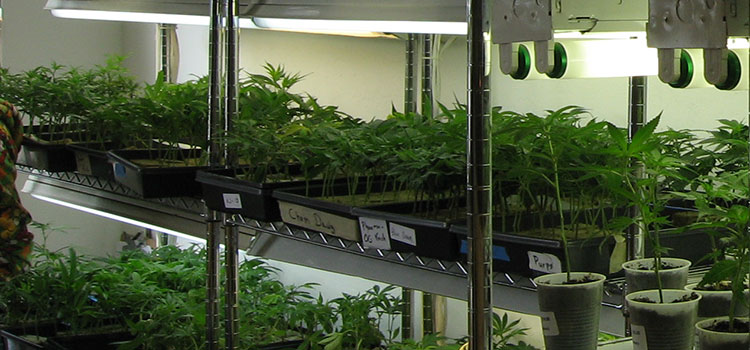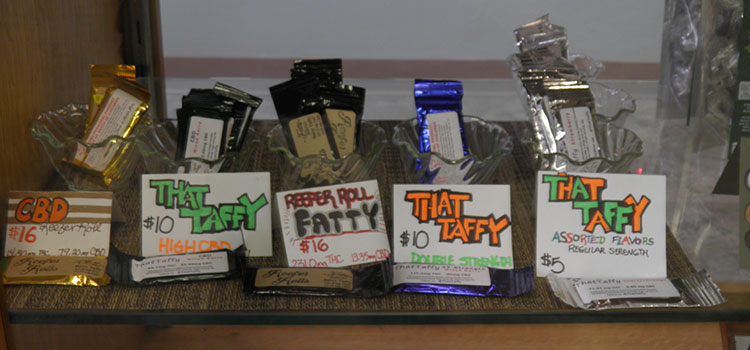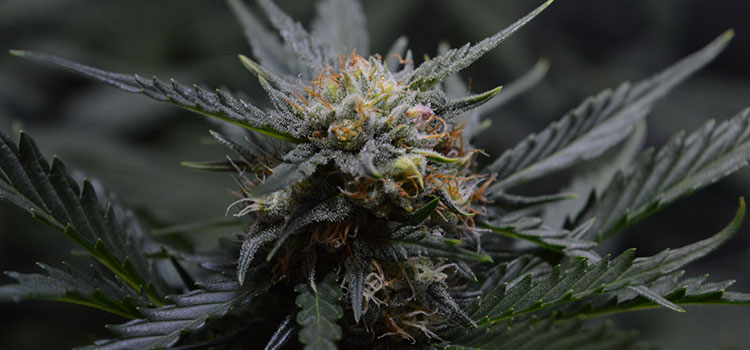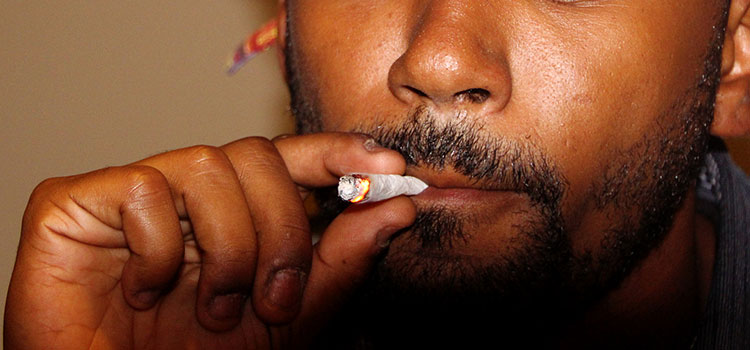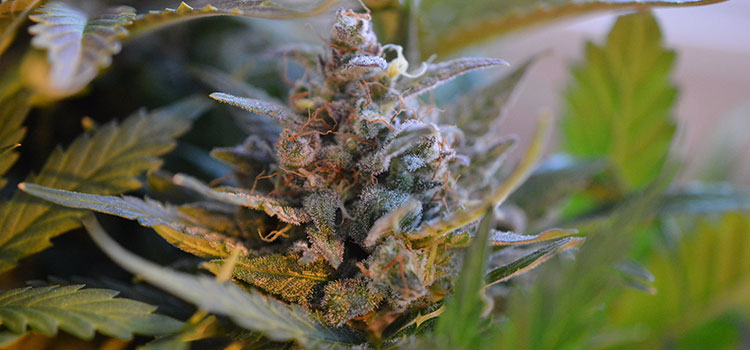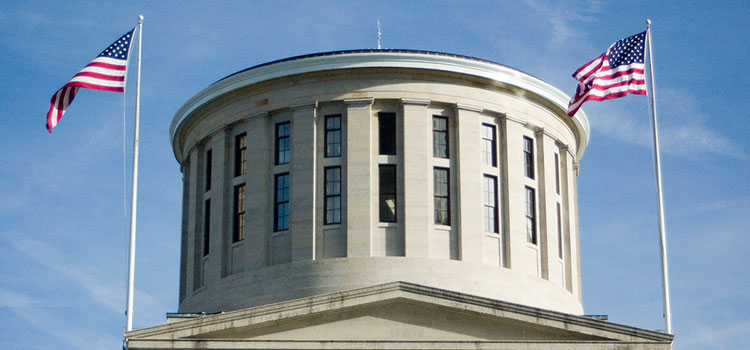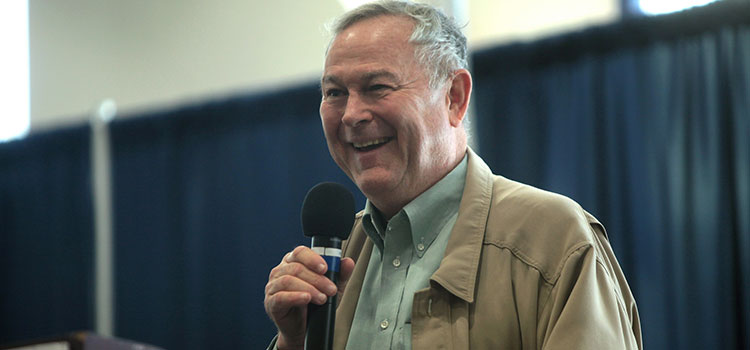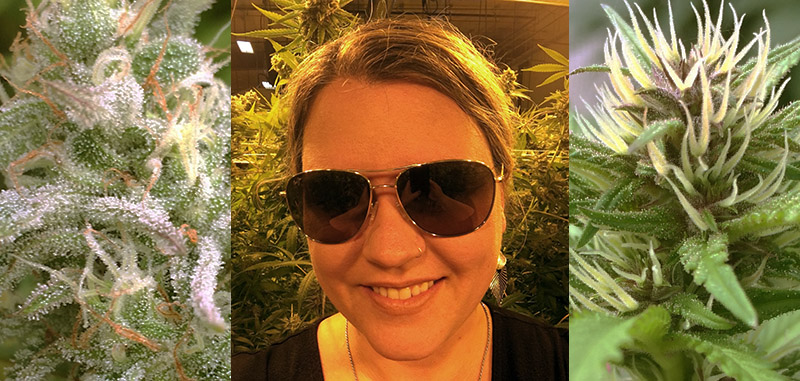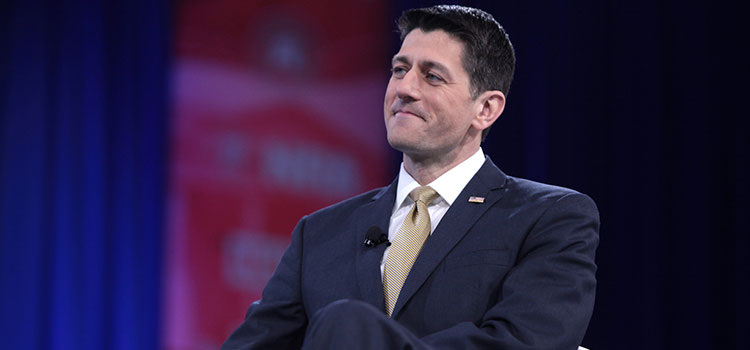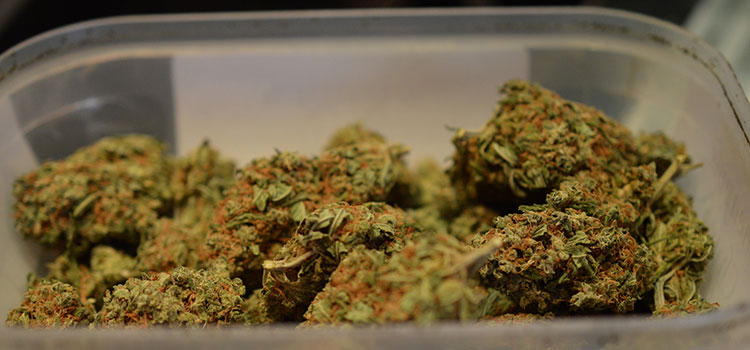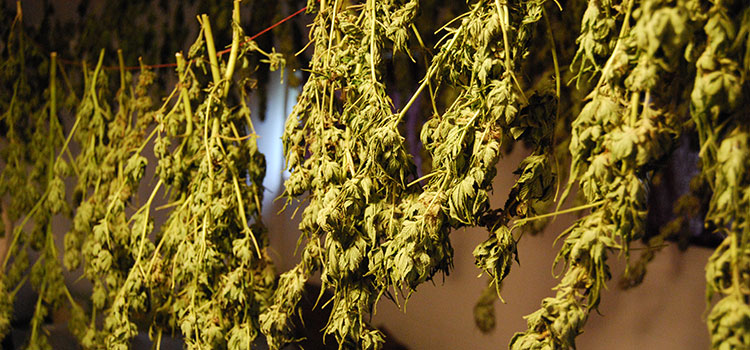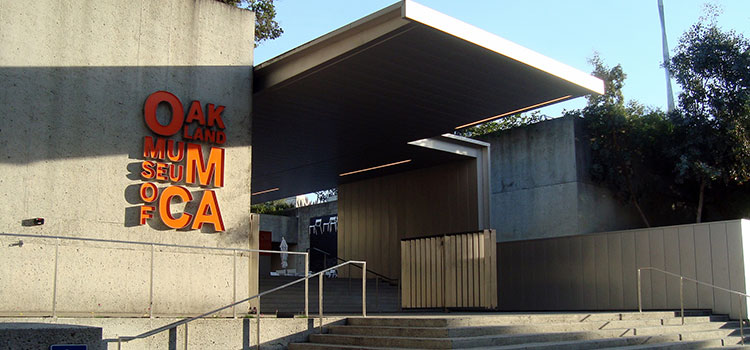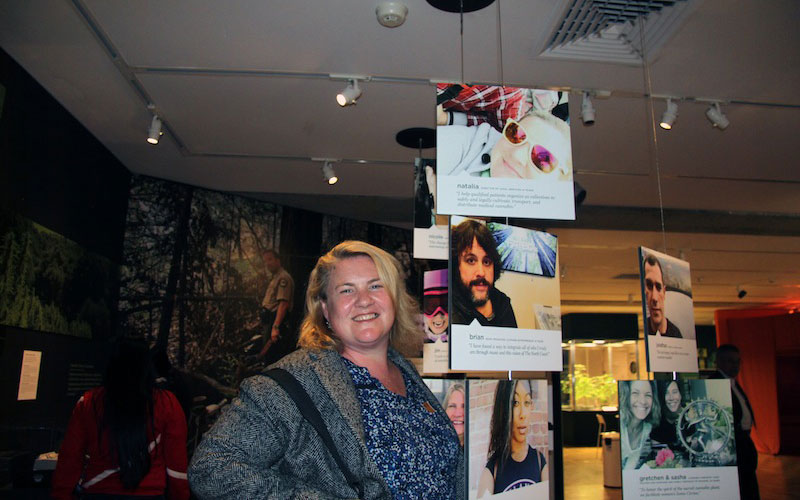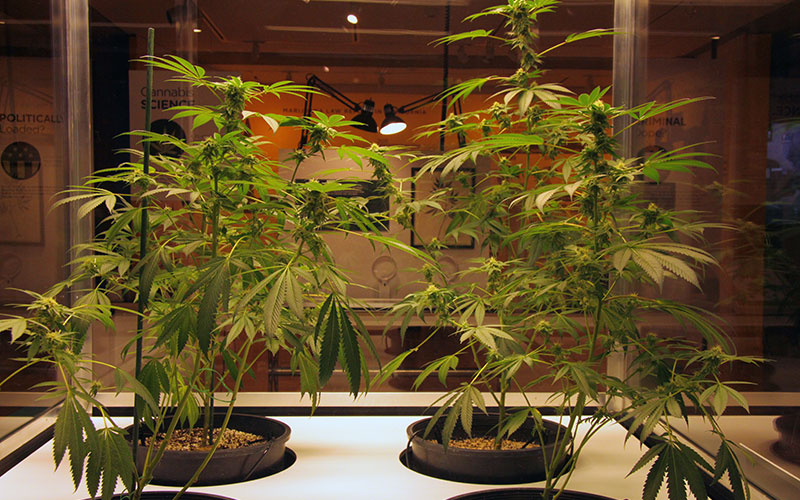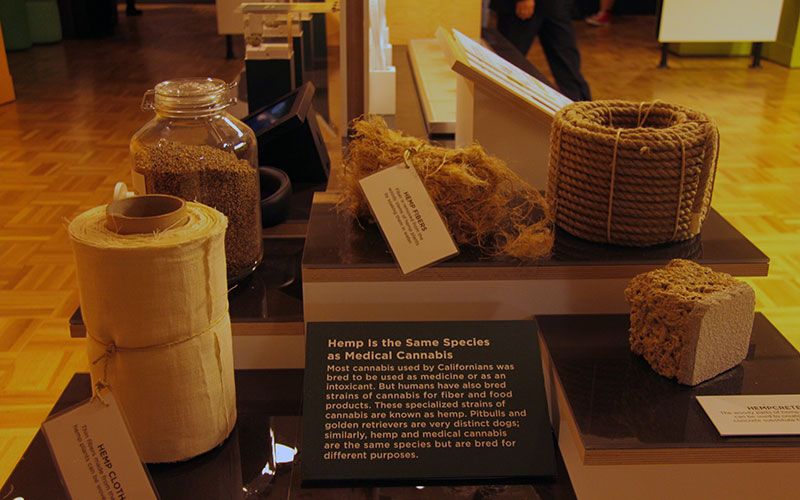Casey Hubbs is the extraction team leader and lab manager at Orgrow, a licensed cannabis producer and processor based out of Moxee, WA. Casey’s story is one that illustrates exactly how the cannabis industry is made up of ordinary people who have made the extraordinary decision to jump head-first into an uncertain career. She recently joined our podcast host Shango Los for a discussion about how she got her job after majoring in herbal science, how she became the go-to source for advice about medical cannabis in her community, and what her average day in the lab consists of. Listen to the podcast below, or scroll down for the full transcript!
Subscribe to the Ganjapreneur podcast on iTunes, Stitcher, SoundCloud or Google Play.
Listen to the podcast:
Read the transcript:
Shango Los: Hi there, and welcome to the Ganjapreneur.com podcast. I am your host, Shango Los. The Ganjapreneur.com podcast gives us an opportunity to speak directly to entrepreneurs, cannabis growers, product developers, and cannabis medicine researchers, all focused on making the most of cannabis normalization.
As your host, I do my best to bring you original cannabis industry ideas that will ignite your own entrepreneurial spark, and give you actionable information to improve your business strategy and improve your health and the health of cannabis patients everywhere.
Today my guest is Casey Hubbs. Casey is the cannabis extraction team leader and lab manager at Orgrow, a producer and processor in Moxee, Washington. Casey graduated from Bastyr University in 2008 with a degree in herbal science. She’s a long time master formulator of cannabis topicals, tinctures, and edibles and now brings those wide range of expertise to cannabis product development and manufacturing.
Often on this show, we focus on CEOs and internationally known cannabis researches, but when you get right to it though, it is the industry’s middle management that is the backbone of making sure quality cannabis products actually reach the store shelves. Today we are profiling Casey for everybody who’s curious about what it’s like, daily life in a production cannabis lab. Welcome to the show, Casey.
Casey Hubbs: Thank you, Shango. Thanks for having me.
Shango Los: Casey, we got to start at the top. You went and put in all that effort and got your degree in herbal science at Bastyr and then you go into a new industry that’s in chaos. Why did you choose to take a career chance and delve into the cannabis industry?
Casey Hubbs: Right.
Yeah, well when I was a senior at Bastyr, I ended up getting pregnant with my daughter, which was completely unexpected, and I did not want to continue school. I wanted to take time off for her, so I didn’t further my education and I didn’t want to dive right into a career because I wanted to be a momma. I had a childcare background, and so I decided that I would just take that a little further and start a business on a little island that I worked on and I did that for six years. I was actually really successful at it, but then once Isla started school I wanted to get back into the herbal medicine. I had started working with some people on cannabis. My best friend’s mom actually came down with a really aggressive form for rheumatoid arthritis, and she was a little worried about taking opiates and narcotics for her pain and wanted to start using cannabis, which ended up being really great for her because she also was doing chemo infusions to help knock out her immune system.
We started playing around with it and I kind of fell in love with it and then decided that because I was successful with her, it kind of opened up a door to these new people that I was meeting that were more involved in cannabis. One thing lead to another, and I decided to take a leap of faith. I had lot of student loans to pay off and put a couple resumes in and one thing lead to another and here I am today, working for a large tier-three grow.
Shango Los: You know, it is pretty powerful how when the people in the community find out that you know how to both process cannabis into a product that’s highly usable, but also you know how to recommend its usage for the patient, how suddenly you become the community expert and everybody wants to come to you.
Casey Hubbs: Yeah, definitely. I definitely had a leg up considering I knew how to work with plants and I knew how to extract plants and I knew about their constituents and their solubility. I didn’t know about activation for edibles and things like that in the very beginning, so I definitely had a large learning curve as far as cannabis. It was really, really exciting for me to see how it unfolded.
Shango Los: So. Go ahead, yeah. Sorry.
Casey Hubbs: No, that’s okay.
Shango Los: Right on. So there you are, you get your first job in cannabis. Of course, now you’re showered with a big salary and a title, right?
Casey Hubbs: Yeah, no. Actually I took a major pay cut to come put all my cards into cannabis, hoping that on the other side it was going to be successful and fruitful for me, and that I would have a career.
Shango Los: The other part that I know was the challenging part is that you were living on an island and then suddenly this job that you got was way on the other side of the state. What was that like for you? I mean, that must have been a hard decision to decide to move your family for a gamble in cannabis.
Casey Hubbs: Yeah, actually it was huge. I give a lot of credit to my husband for being supportive. The job that I ended up taking was in Moxee, and I grew up in Naches, Washington. So, one of the reasons that I could take this job here was that I had family support to help with my daughter. When we came over here we left our home, which I sometimes regret a lot as far as my daughter’s happiness and this sweet little community to back into the sticks. It’s been hard, but it’s been worth it, I think.
Shango Los: Right on, so cool. So we see the kind of struggle you went through to decide you wanted to try cannabis because you were excited about it and you had the skills for it.. So what were your initial responsibilities upon hire?
Casey Hubbs: I was hired at Orgrow to run their CO2 extractor, and to help them formulate. We were running an edible program at the time. We still are somewhat. We’re not offering as many edibles at this time, but we’re still continuing that program. To find out how to manipulate the oil, get it into pens, come up with a sell-able product, help them formulate tinctures and capsules, and other products as well.
Shango Los: You know, it really is a pioneering position because a lot of the corporate memory and business intelligence that is now readily available for states that are normalizing now, people like you in the early days of Washington were all in your own labs trying to figure out how to do this. Yeah, sometimes you guys were trading information via the internet or over drinks or something. But really, it was a whole bunch of mad scientists in 502 production labs trying to make the damn viscosity of the oil run for the cartridges, right?
Casey Hubbs: Right, right. Yeah. I have to tell you, I had a lot of really frustrating days. I thought I was going to come in here and it was all going to fall into place and I was going to be making tinctures all day, which I could do. Really it was beating my head up against the wall over and over and over. I had lots of frustrations, a lot of anger, a lot of second guessing why I had moved out here, and a lot of tears really, but I’m stubborn so I persevered. We definitely had some consultants come in and give us some direction, which was really helpful. Today we’ve kind of arrived at a place where I think we can be competitive and we do understand the oil. Finally, after about two years, we’re here.
Shango Los: Right on. So a lot of people, they think about the glamour of working in cannabis. Like, “Aw yeah. I’m gonna formulate, I’m gonna manufacture this stuff.” It’s gonna somehow look like it does in Disney, where you’ve got birds flying in the oil to you, a butterfly bringing you the edible.” It’s not like that. It’s kind of grimy, isn’t it? When you’re doing production things are getting tipped over, things are not being purged right, you have to start over again. I can imagine that that would be really frustrating trying to invent the wheel for the first time.
Casey Hubbs: Yeah, absolutely. We definitely went through a lot of product in the beginning. A lot of R&D. I think myself, as well as the company I was working for, was getting kind of frustrated with it. You’ve gotta worry about the color, you’ve gotta worry about the waxes, you’ve gotta worry about temperatures and parameters. It all feels like you’re losing your mind a little bit and then all of a sudden things start making sense and you have these moments of: “Oh my gosh. Right! Okay, that makes sense.” And you move on to the next step. It really is building it up piece by piece by piece.
Some people want to offer help, and other people don’t and they feel very proprietary about their information. They’ll give you bits and pieces and then the rest of it you put together like a puzzle.
Shango Los: Right on. I want to ask you one more question before go to the break. After the break we’re going to talk about some of your successes. But I want to put you on the spot right and ask you, will you describe one of your utter failures?
Casey Hubbs: Oh. I have a lot of them, I think. Yeah, I have one. We were developing, we were looking at topicals. We were playing with a chapstick. We had several samples set up for people, especially the owners to give to the board, which is what we did with all of our products. I was working with another gal that was in the kitchen with me. We made all these chapsticks and went and handed them out. The next day one of the owners, our general manager, CEO/base principal came back in and his lips were all red. He was like, “This didn’t work for me. My lips felt a little burned.” I think that was probably one of the biggest embarrassments. I spill a lot, so that happens in the lab, too. Anybody that’s working with this oil, especially winterized oil, knows that the minute you have one drop anywhere you have a complete disaster. That’s going to be there until somebody rubs enough dirt on it to be able to see it. It’s a very messy, dirty process.
Shango Los: That’s awesome. Thank you so much for sharing that story. We’re going to take a short break and be right back. You’re listening to the Ganjapreneur.com podcast.
As a cannabis entrepreneur, you know how challenging recruiting quality talent can be. Your day is already busy enough and yet there is an ever-growing pile of resumes on your desk and your team is begging you to hire more help. Hiring the right person can make a profound impact on your company. There’s no reason that you have to suddenly be an expert hiring manager. Not when there’s Viridian Staffing. Viridian Staffing recruits solely for adult use cannabis, medical marijuana and hemp companies, and those who service them. Viridian Staffing’s recruiters each have over ten years of experience and they will use that experience to recruit the kind of employees that will make you look good.
Whether you’re looking for master grower, extractor, grow room support, or trimming, Viridian can find an appropriate person in your area. They can even recruit administrative or graphic design professionals who may not need cannabis experience.
Because you are a startup, you may also need human resources help for a while. Viridian Staffing can make sure that your HR files are complete and keep you out of trouble with state and federal employment requirements. Because the cannabis industry is booming, cannabis recruiting companies are popping up all over the country. But good marketing does not mean good recruiting. Some of the recruiting shops that have opened are run by novices who do not yet have a thorough understanding of employment law and the complexities of hiring for cannabis. Don’t hire an amateur to find you a professional. Consider Viridian Staffing to make that stack of resumes disappear and complete your team with exactly the hire that you were hoping for. You can find out more at virdianstaffing.com – that’s v-i-r-i-d-i-a-n staffing.com. Now, back to the show.
Welcome back, you are listening to the ganjapreneur.com podcast. I am your host, Shango Los. Our guest this week is Casey Hubbs, extraction team lead and lab manager at OrGrow.
So you were such a good sport, Casey, before the break telling us about an abject failure of yours. Let’s turn it around and talk about some of your successes. You were describing in the first half about how startup environment and things were chaotic. Because Washington was one of the first states to normalize, you and other people like you in the state were trying to figure out how to do all this stuff for the first time. Do you remember the first moment when you had the realization that things were actually coming together?
Casey Hubbs: Yeah, I do. I do. It was only pretty recently, actually. About six or seven months ago we launched our Nova Cartridges, which is our vape oil, our CO2 extracted oil. We got picked up by a few stores across the state that wanted to carry our product exclusively. That was kind of my first hint at, oh wow we’re doing something right here. Then from that moment on I think my confidence became stronger and a little of the pressure was off so that I could really focus on some more of our techniques. A couple of months after that … I was really fighting with CO2 a lot. It just wasn’t doing what I needed it to do.
The market really wanted those concentrated, so shatters and waxes. I was having a really time with CO2 doing that. So I wanted to explore other options of extractions. Something that I was extremely with was ethanol. That’s what I learned at Bastyr was ethanol extracts. I was worried about hydrocarbons. It wasn’t something that I felt good about. I know there’s a huge culture and they make amazing extracts and with the parts per million (ppm) being monitored the way that they are and the analytics. It’s not that I don’t think it’s safe, it’s just that I didn’t want to make that product.
So we started playing with ethanol. I just did a ton of research and I had a lot of people who were willing to talk with me about a few of their processes. I put my own spin on it and all of a sudden our stuff was selling. People wanted it so much that I was running a two liter rotovap and I couldn’t keep up. So we ended up getting some more equipment through Genius Extractions based in California. We purchased their twenty liter rotovap. He came in, he meaning Richard, one of the brothers that’s involved in the company, came in and looked at our product and went, “Oh my gosh, that’s ethanol?” In that moment, I think I really married it. He said, “Wow, I’ve been across the country,” and he said, “I think you are probably top 5%.” In that moment I thought we’ve arrived, we’re good, I can let some of the pressure go. I think that’s what I feel most proud of right now.
Shango Los: You know, that’s a really good point, too. That kind of encouragement when you are doing your best, you know that the sale of the product that you’re developing has got a lot of people’s paycheck riding on it, you’ve gotta get encouragement from somewhere. Sometimes that encouragement comes from upper management. Sometimes it might come from a consumer who reaches out to you and says this is a damn good job. In this case it comes from a vendor who can give you a really educated opinion. That’s really great that that happened for you.
So I know that you have developed a whole line of products for OrGrow. What’s another one that you feel really proud of?
Casey Hubbs: I really like our capsules. I haven’t gotten to get so much into formulating, which is what I’m really excited about. We do edibles and stuff like I said before. We’re working on our concentrate department. That’s kind of where our main focus has been. We’re starting to look into other products as well, but our capsules, we take really great care to preserve our terpenes during our decarboxylation process. I really think that that has a huge effect on the delivery of our products. So the capsules, we have only done a small test market with them but the feedback has been very great for us.
Shango Los: That’s a good point. A lot of people don’t realize how important it is to preserve those terpenes. Some of the processing styles are really ruthless on the whole plant extract and suddenly your terpenes are gone, and terpenes are an essential part of true cannabis medicine. Even if you’re not taking it technically as medicine, if you’re taking it recreationally, recreationally is still relief medicine. It’s the terpenes, the aromatherapy of the cannabis plant that kind of sculpts what your high is like. So if you want the medicine to have any kind of personality, you’ve gotta preserve all that stuff.
Casey Hubbs: Yeah, absolutely. I believe in the entourage effect 100%. That’s one of the hard things about using ethanol, because ethanol is really known for depleting those terpenes in the products. We’re pretty careful about how we handle it and so far our feedback has been really, really good.
Shango Los: Right on. So for those who are listening who are coveting your job, give a little description of how your job has evolved from when you first started to now. I know that you’ve gotten some more responsibilities, but how did that progress go?
Casey Hubbs: So when I got hired on at OrGrow I was supposed to help them formulate products, understand the analytics behind the testing, and to run the CO2 extractor. That was it. But there was only about three of us full-time employees at the time, so it was all hands on deck. However, over the course of the last couple years or year and a half, we have lost a lot of people and we have implemented a lot more into what’s required of us. Now I prep all of the lab samples, the samples go out. For analytics we prioritize as far as extraction goes. The kitchen, help with the kitchen, proper homogenization. Everything from biotrack to seeing things get delivered out the door, so quality control. Communication between packaging and sales. Consulting for problems in the garden. Consulting with labs. Dealing with all of the vendors that we use for products. The list really goes on, and on, and on.
Shango Los: That really is the magic of middle management, right? You pretty much listed every aspect of a producer/processor expect for getting the investment capital and sales. So everything that’s happened in the building, you are a part of. I think there’s two important lessons about that. Number one: that working in a startup you’ve gotta be willing to wear a lot of hats and not be a prima donna about the part that you do. Also, for those who feel like they are an expert in one category, that if they really want to be successful at a startup it’s good to have things that you’re a master at, but also have some knowledge in all the other categories so that you can throw in some help in a jam.
Casey Hubbs: Absolutely, and be humble enough to go shovel snow if that’s what’s required of you.
Shango Los: Right on. That’s right, I forget you’re over there in eastern Washington. You actually have snow.
Casey Hubbs: We have snow. We had a lot of snow this winter, actually.
Shango Los: Right on. So again for the folks who are imagining themselves in your job, and this request may seem a little mundane to you, but I’m actually curious about it, walk us through a typical one of your days. It can’t always be like massive, awesome brilliance. Walk us through what a day of yours looks like.
Casey Hubbs: Right. Well, most of the time I’m running around like a chicken with my head cut off just shouting orders and trying to process. I get here and the first things I like to do is prioritize. So what I’ll do is I have boards that have Monday through Friday on them because our product, as it goes out, has to sit in quarantine for 24 hours. If you don’t have all your ducks in a line and your packaging and quality control isn’t finished, you can’t quarantine on time to get your sales out the door for delivery. Basically, that’s probably one of my number one priorities in the morning.
So I’ll come in, prioritize, see what needs to go out, make sure someone’s on packaging so that that can be finished. From there, I’ll check in to see where I am at in processing. So that’s the rotovap or short path or what’s being frozen or winterized and figure out what needs to happen with that. Then, also pick out what we’re going to run next and whether we have enough of one strain hitting the sativa, the hybrid, the indica coming down the pipe to make sure that we can fill all of the shelves with whatever people want, right. Then after that basically it’s just making sure that everything is labeled and converted in bio-track so that we’re following the LCB guidelines. Then pretty much wrap it up at the end of the day with clean up, which is pretty typical.
Shango Los: It’s interesting, because what you are describing are the non-sexy parts of the job. If we were to take out the word ‘cannabis’ and put in any other food product, it just sounds like you’ve got a job.
Casey Hubbs: Right. Yeah, it’s very, very similar to agriculture. I mean, that’s what it is. I think that all the time that this seems really glamorous and exciting, and cannabis is. There’s a lot of really cool things happening with cannabis and in the industry, but at the same time and at the end of the day, you’re right. When you remove the name cannabis it is just another profession.
Shango Los: Awesome. So we’re gonna to take another short break. When we get back we’re gonna talk about the gear in your lab. You are listening to the Ganjapreneur.com podcast.
The Ganjapreneur.com podcast is listened to by tens of thousands of cannabis entrepreneurs and enthusiasts every single week. These folks are most likely your target customers and we’d like to introduce you to one another. Our down to earth and information-rich commercial breaks can deliver your message to the cannabis business community and others who just find relief in getting high. If you want to reach out and connect with our audience in the most personal way that we can offer, go ahead and drop us an email at grow@ganjapreneur.com and we can talk about you becoming a commercial sponsor of the podcast. Thanks for listening and being part of the Ganjapreneur family. Now back to the show.
Welcome back. You are listening to the Ganjapreneur.com podcast. I am your host, Shango Los. Our guest this week is Casey Hubbs, extraction team lead and lab manager at OrGrow. Before the break we were talking about the things that can go right and wrong in the lab. We were talking about some of the products that you’re most proud of. I now that we have got gear heads who are listening to the show that are all like, “But what’s in her lab, man?” So let’s put that on the pedestal for a moment. Why don’t you break down the gear in your lab and any thoughts you might have about them.
Casey Hubbs: Sure. Right now as far as vacuum ovens, I’m running the TVO-5 with Cascade Botannical. I also have one of the smaller version of the Across International. Both of the equipment are super strong and both definitely have some weaknesses that I would probably wish to combine the two and make the perfect machine. But overall I’m actually pretty satisfied with Cascade. I really love that they’re a local company and their tech support is phenomenal.
As far as extraction equipment, right now we have a big 8×8 walk-in freezer that we’re doing a lot of our processing in. We recently purchased an extractor from Genius Extractions, we’re running the 20 liter. So far I’m really excited about. It has made our production go up by so much, and the quality of the product is still holding true to our smaller rotovap, which is a Buchi. I have run my Buchi for, oh my gosh, a little over a year and never had a hiccup with it. It has been a phenomenal machine.
So the CO2 extractor that we’re using is an Apeks. It’s been a work horse. We have had a lot of problems with it. As Apeks grew we kind of lost them on customer service a little bit. I don’t have anything bad to say about it, it actually put out a great product that I actually love for my pens. Great terpene preservation, but like I said we bought one of the first models so they did a lot of research and development in between the time period that we had purchased that and now and our machine is pretty much obsolete.
That’s about it for equipment. I do have a short path that I use. We’re using Hulabo and I’ve actually had some problems with, so we’re looking into the Heidolph system. Overall they’re all great, they’re all great piece of equipment. Nothing’s perfect, of course. There’s a lot of learning. The learning curve is huge, but I’m pretty happy with all of them.
Shango Los: You know, one of the things that you mentioned that I think is important to point out is how quickly the revs of these products are coming. Because the market is so new and a lot of these products have been developed specifically for cannabis, some haven’t. But the ones that haven’t, they are now being reapplied to this new industry. So they put out a new product, they get all this new feedback, and suddenly they’re like, “Oh my gosh. We’ve gotta upgrade this.” So now there’s a new version of it, but you just bought the old one eight months ago or whatever. I think that’s a really important thing both for, entrepreneurs who are going to set up a lab to remember, and for companies that are designing these, that everyone should be prepared for rapid development of these new technologies. It is a petri dish of creativity and feedback right now.
Casey Hubbs: Yeah, it is. Absolutely. I would say that one of the best ways to keep yourself informed if you are looking at purchasing equipment is to go to the shows. I have gotten so much information from going to shows where the equipment is set up. Even analytical labs, they have a lot to say about the product that they’re seeing. Everything is private, but they still can talk about the different equipment. That was really helpful for me.
Shango Los: Right on. So let’s wrap up with talking about the actual lab management. It is one thing to be an extraction technician and it’s something else to be responsible for that the lab is actually functioning. It’s a higher level of organization that’s gotta take place. What are some of your experiences with actually managing the lab that are worth remark?
Casey Hubbs: Right. That’s actually been a really hard transition for me. I came in kind of in control of the lab because really the investors that I worked for, the company, was non-marijuana people. So I had marijuana knowledge, but needed to sell them on it. Basically tell them, okay this is what I see, this is what we should do and they were super, super supportive of that. But I also made a lot of friends in those first beginning stages, along with coworkers who were helping me. So I think going from being friends to being professionals was a pretty hard transition. Also, the biggest thing is making sure that you’re tracking. You have to track everything. It’s easy to go in there and make products and R&D on different things that you’re developing, but then tracking that and making sure that you’re being conscientious of how the company is spending money on you and the people that are working under you is pretty stressful. It’s definitely a different game.
Shango Los: Right on. Cool, well thanks for explaining that. That’s all the time we’ve got. Time for us to wrap up. Casey, thanks so much for being on the show. It’s really nice to hear a day in the life of somebody who’s really actually doing it and putting the cannabis on the shelves, so thanks for sharing your story.
Casey Hubbs: Thank you so much for having me, Shango.
Shango Los: Casey Hubbs is the cannabis extraction team leader and lab manager at OrGrow, a producer and processor in Moxee, Washington. You can follow Casey’s Instagram for lab photos at @herbal_majesty.
You can find more episodes of the Ganjapreneur podcast in the podcast section at Ganjapreneur.com and in the Apple iTunes store. On the Ganjapreneur.com website you will find the latest cannabis news, product reviews, and cannabis jobs updated daily, along with transcriptions of this podcast. You can also download the Ganjapreneur.com app in iTunes and Google Play.
For info on me and where I will be speaking, you can go to shangolos.com. Do you have a company that wants to reach our national audience of cannabis enthusiasts? Email grow@ganjapreneur.com to find out how. Today’s show was produced by Michael Rowe. I am your host, Shango Los.
